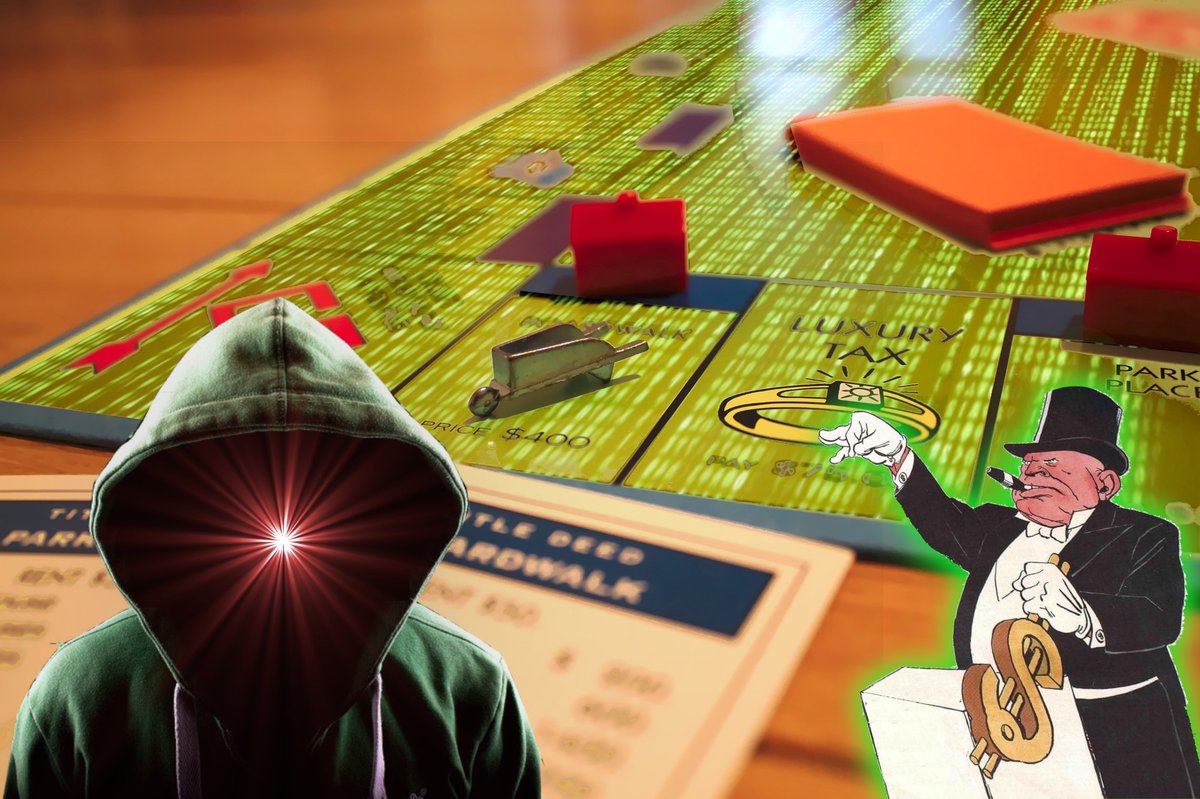
"Political economy" may sound like an obscure technical matter, but it's a really very simple (and incredibly important) idea: That the economy is inevitably political, and there is no way to depoliticize economic theory. 1/ 

That is, every aspect of economics - taxation, antitrust, contract and labor law, etc - is fundamentally political. There is no objective perch on which an economist can stand and decide which tradeoffs are empirically best. 2/
What's more, any claim to about such a neutral test of economics is itself political: when economists assert that "Pareto optimal" is the same as "fair," they're saying that the people who lose in a Pareto optimal arrangement *should* lose. 3/
This may strike you as incredibly obvious, but if so, you're probably not an economist. The neoliberal economics of the past 40 years asserted that an economic system that benefits the rich is also the fairest system. 4/
Thus, any attempt to intervene to produce a more even wealth distribution pollutes our economy with "politics."
This claim to objectivity is a familiar rhetorical cheat. 5/
This claim to objectivity is a familiar rhetorical cheat. 5/
Think of the machine learning hucksters who claim that "math can't be racist" so we should buy their automated sentencing, predictive policing, hiring and lending algorithms. 6/
Denying political economy is particularly useful if you are in the "hard" sciences that deal with mathematical models. It's a great way to sweep the problem of quantifying fundamentally qualitative matters under the rug. 7/
Like, "We asked you how much pain you were experiencing on a scale of 1-10 - why would we ask you to *describe* your pain? We can't do math on a description!" 8/
This objective pretense bit hard during the pandemic, when quants pretended "contact tracing" (person-to-person rapport to understand the context of exposure) was the same as "exposure notification" (measuring how long two Blueteeth were in range):
locusmag.com/2021/05/cory-d… 9/
locusmag.com/2021/05/cory-d… 9/
40 years ago, the New Deal antitrust policy - which considered the impacts on workers, communities, national prosperity, suppliers and customers - was supplanted by the Chicago School's "consumer welfare standard." 10/
This standard uses mathematical models that are claimed to measure whether monopolies are "efficient" or whether they abuse their power to raise prices or lower quality. 11/
Consumer welfare was sold as an objective, "economic" replacement for antitrust's subjective, "political" standard. In reality, it was anything but. The consumer welfare standard was deliberately designed to allow monopolies to form. 12/
One of its architects, Frank Easterbrook, laid down the doctrine that it was better to let a few "bad" monopolies form than to accidentally crush a "good" monopoly. 13/
Easterbrook claimed to be operating objectively, but really, he was dressing up his ideological preference for corporate rule - the right wing ideology that we're all better off when "great men" are in charge - as mathematics. 14/
Easterbrook's analysis had a lot of serious deficiencies, but the most important one was the core question of political economy: how will monopolies and the state interact with one another. 15/
What Easterbrook missed is that big businesses can extract higher profits (because they can force lower wages on workers, lower margins on distributors, and higher prices on buyers). These excess profits - "monopoly rents" - can be invested in political spending. 16/
Political spending can be converted to policies that allow large firms to do things that harm others and benefit themselves.
Like, here's a perfect microcosm. There are two ways to cultivate sugar-cane. 17/
Like, here's a perfect microcosm. There are two ways to cultivate sugar-cane. 17/
You can burn it to get rid of the outer leaves, or you can spend a little more to cut away the leaves after the harvest. 18/
The former is cheaper for growers, but it imposes a heavy cost on surrounding communities, who get asthma and other chronic breathing diseases from the soot.
Last year, Florida's state legislature passed a bill to prevent "nuisance suits" against farmers. 19/
Last year, Florida's state legislature passed a bill to prevent "nuisance suits" against farmers. 19/
These "nuisance suits" were actually brought Black and brown families who live in the smoke-plume of cane-burning, suing giant, wildly profitable cane growers.
The bill passed. 20/
The bill passed. 20/
The families who are burdened with lifelong, debilitating disease by the growers' decision to goose their fat margins by a few points lost. 21/
One of the fiercest fighters against those families was Joaquin Almazan, who was elected city commissioner of Belle Glade, the capital of cane, just a few weeks before the vote. 22/
In @propublica, the @pbpost's @mannahhorse lays out the political economy of Almazan's campaign: the way that monopoly was converted to money, money to power, power to policy:
propublica.org/article/how-th… 23/
propublica.org/article/how-th… 23/
Almazan ran against Steve Messam, who wanted to end cane burning. Each raised $16,000, 500% of the typical city commissioner's campaign budget in Belle Glade. Messam raised his historic funding from 200 small-dollar donors. 24/
Almazan got his money from 40 rich people connected to the sugar and farming lobbies (these same donors spent lavishly on candidates for two other commission seats). 25/
In his campaign against the families sickened by cane burning, Almazan claimed that they were being used as a pretext by "wealthy, out-of-town, so-called environment special interest groups." It wasn't true, of course. 26/
The environmental groups that contributed to Almazan's opponent were local, like the Florida Sierra Club.
Almazan's victory wasn't just down to the 40 people who gave him $16,000 for his campaign. 27/
Almazan's victory wasn't just down to the 40 people who gave him $16,000 for his campaign. 27/
A PAC called "Glades Together" spent lavishly to support his campaign, thanks to its backers: Liberate Florida backed by the Florida Prosperity Fund, backed by...U.S. Sugar. In other words, a monopolist bought the election. 28/
U.S. Sugar's workforce is partly organized under the International Association of Machinists. The local has thrown its lot in with U.S. Sugar, allowing the monopolist to divide workers from locals - many of whom are also workers in the fields. 29/
This cozy relationship between unions and corporations is another casualty of monopoly: when a company is the only employer, the union will stan for it, even if that means dooming its own members and their kids to a lifetime of debilitating respiratory illnesses. 30/
Almazan and his colleagues then lobbied the state legislature, claiming to represent the interests of residents of the Glades. It worked.
This is pure political economy. 31/
This is pure political economy. 31/
When an industry is monopolized, it has fewer executives who have to solve the problem of agreeing on a course of action. It also has more money to spend on pursuing that policy. 32/
The new policy allows the company more freedom to externalize its costs - saving pennies on cane processing while costing the community millions in health problems. These additional profits can be diverted to more lobbying. 33/
This is the biggest problem with the "consumer welfare" standard of antitrust enforcement. It's the inevitable outcome of allowing businesses to present their side as "empirical" and the public's side as "subjective."
"Political economy," in other words. 34/
"Political economy," in other words. 34/
Image:
Rob and Stephanie Levy (modified)
flickr.com/photos/robands…
CC BY 2.0
creativecommons.org/licenses/by/2.… 35/
Rob and Stephanie Levy (modified)
flickr.com/photos/robands…
CC BY 2.0
creativecommons.org/licenses/by/2.… 35/
ETA - If you'd like an unrolled version of this thread to read or share, here's a link to it on pluralistic.net, my surveillance-free, ad-free, tracker-free blog:
pluralistic.net/2022/02/03/liq…
pluralistic.net/2022/02/03/liq…
• • •
Missing some Tweet in this thread? You can try to
force a refresh











